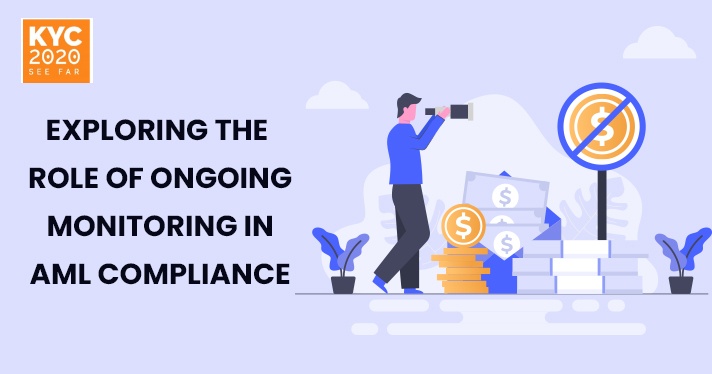Money laundering is a serious crime that can have devastating consequences. It involves taking illegally-sourced money and making it appear as if it were obtained from legitimate sources. Business owners need to take the necessary steps to ensure their company is not involved in any money laundering activities. Here are some tips to help prevent money laundering in your business.
What is Money Laundering?
Money laundering is a process used by criminals to disguise the origin of illegally gained money or assets. It typically consists of three steps: placement, layering, and integration. In the placement phase, criminals introduce their illicit funds into the financial system or move them around so that they are difficult to trace. The next step involves layering which refers to various transactions that mask the source of the funds by breaking them up into smaller amounts and separating them across multiple accounts or entities.
Finally, in the integration phase, criminals reintroduce their laundered money back into legitimate channels where it appears as if it was obtained legally.
Anti-Money Laundering Controls
To stop criminals from engaging in money laundering activities, organizations have implemented AML controls such as customer due diligence (CDD), enhanced due diligence (EDD), suspicious activity reports (SARs), currency transaction reports (CTRs), and know your customer (KYC). CDD requires companies to collect information about their customers before allowing them access to certain services such as opening an account or transferring large sums of money.
EDD requires organizations to conduct additional screening for high-risk individuals or transactions such as those involving politically exposed persons or international transfers over a certain amount. SARs require organizations to report any suspicious activities such as unusually large transfers out of an account or multiple payments from different sources made within a short period of time. CTRs involve reporting all financial transactions over $10,000 USD while KYC requires organizations to verify customers’ identities before they can use their services.
Here are some tips to help prevent money laundering in your business
Know Your Customers
One of the most important things you can do to prevent money laundering is to know who your customers are. Get as much information as you can about each new customer before they make a purchase or deposit funds into their account. This includes verifying their identity, conducting background checks, and ensuring that the person you’re dealing with is who they say they are. It’s also important to keep detailed records of all transactions so that you can easily identify suspicious activity if it occurs.
Train Employees
Another important step in preventing money laundering is training your employees on how to spot suspicious activity. You should make sure that all staff members understand what constitutes money laundering and how to identify potential cases of fraud or criminal activity. Regular training sessions should be conducted on a regular basis so employees stay up-to-date on the latest laws and regulations surrounding money laundering prevention strategies.
In addition, be sure that every employee knows exactly what steps they need to take when they suspect something unusual or out-of-the-ordinary has occurred in the course of their workday.
Money Laundering: The Importance of Prevention
Money Laundering is a Global Problem
Money laundering is not just an issue in one particular country or region; it’s a global problem that affects all countries in one way or another. In 2019 alone, an estimated $1.2 trillion was laundered around the world via various banks, shell companies, and other entities. This figure doesn’t include the billions more generated by terrorist organizations through illegal drug sales, human trafficking, and other activities that are then laundered through international banking systems.
The Impact of Money Laundering on Financial Institutions
Money laundering can have devastating consequences for financial institutions if it goes undetected for extended periods of time. That’s why it’s so important for them to have robust anti-money laundering (AML) programs in place that can detect suspicious activity early on and prevent it from getting out of hand.
Additionally, banks must also comply with government regulations such as the Bank Secrecy Act (BSA) and Anti-Money Laundering Act (AMLA). Failure to do so can result in hefty fines from regulators or even criminal charges. Banks must also invest in training their staff on AML policies and procedures to ensure they are up-to-date on the latest regulations and best practices when detecting and preventing money laundering activities.
Benefits of Investing in Money Laundering Prevention
Investing in money laundering prevention pays off; not only does it protect your institution from costly legal penalties but it also helps build customer trust in your business since customers know their funds are safe with you.
Furthermore, investing in money laundering prevention can help you meet government regulations more quickly and easily since you don’t have to worry about running afoul of any laws or regulations when conducting transactions with customers who may be engaging in criminal activities unknowingly or intentionally.
Finally, investing in money laundering prevention will help strengthen your AML compliance program which will make your institution more attractive to potential investors who want to know their investments are being handled ethically and safely.
Maintain Internal Controls
It’s also important to maintain strong internal controls within your business, especially when it comes to handling customer funds or transactions involving large sums of money. Make sure that there are clear policies and procedures for these types of transactions and regularly review them for any changes or updates that may be necessary.
Additionally, establish a system for reporting suspicious activity so that you can quickly put an end to any potentially illegal practices before they become problematic for your business or its customers.
Conclusion:
Money laundering prevention is an essential part of running a successful business today. Taking the time now to implement effective anti-money laundering measures will save you a lot of trouble down the road if something goes wrong.
Be sure that everyone in your company understands the importance of knowing your customers, regularly training employees on proper procedures, and maintaining strong internal controls so that you can keep your business safe from any potential criminal activity involving illegal funds or financial transactions. Doing this will help protect both your business and its customers from being victims of money laundering scams.






